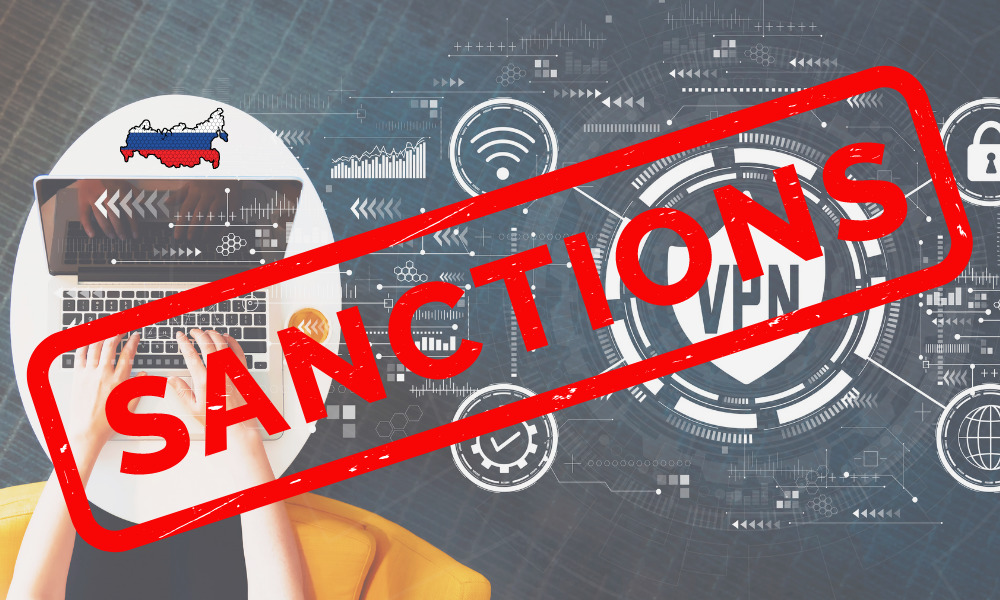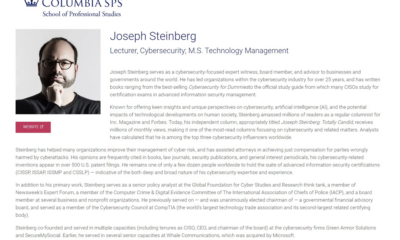Are Western Sanctions Undermining Russian Civilians’ Efforts To Obtain Accurate News Via VPNs?
Russians seeking to obtain accurate information about their government’s war with Ukraine are turning to Virtual Private Network (VPN) technology in order to circumvent Kremlin-ordered bans of more than 1,000 various Western media outlets and other information-sharing websites; unfortunately, however, sanctions leveled by Western governments against Russia are complicating such efforts.
According to a report published by The Washington Post, downloads by Russians of the 10 most popular VPN applications jumped from fewer than 15,000 per day just before the Russian invasion of Ukraine to a current figure of over 300,000 a day – even reaching as high as 475,000 per day at one point during the current military campaign. While some Russians are clearly planning for VPN-service outages and other contingencies, and, therefore, are downloading applications from multiple VPN providers, the growing number of new VPN users is staggering; the Russian broadband provider, Yota, estimates that VPN usage in Russia is now fully 50 (yes, fifty!) times as high as it was prior to the war! Other parties familiar with Russian Internet usage patterns have also estimated that as many as a third of all Russian Internet users now regularly use VPNs.
VPN technologies deliver two major benefits to Russian citizens. They allow Russians to access banned sites, and they help protect users from government surveillance. With many members of the Russian population aware that their government has been (to put it mildly) less than forthcoming and transparent about both the true nature of the military campaign in Ukraine and the full extent of human deaths and suffering inflicted by the Putin-led government, VPN usage has become an obvious technological choice for people seeking the truth.
Because VPN services transmit user requests over “encrypted tunnels” to the service’s own servers, and, only from those servers transmit user requests to their proper destinations, requests by Russians to access banned sites can be made by VPN services to effectively originate from outside of Russia – where no ban is in effect or being technologically enforced. When users in Russia request to access banned sites, their requests reach those sites via a round-about path through the VPN server, and when the sites respond to the VPN server, the server routes the traffic back to the user through the aforementioned encrypted “tunnel” — the contents of which remain inaccessible to Russian government agents.
Unsurprisingly, the Russian government has previously banned some (but not all) VPN services from offering services in the country.
That said, VPNs are a double-edged sword for the Kremlin. The Putin government certainly disapproves of civilians leveraging VPNs in order to obtain uncensored foreign news reports instead of government-sponsored propaganda; at the same time, however, the regime also relies on VPN services to help keep its population calm, copacetic, and busy – as VPN services allow many poorer Russians to (legally, illegally, and/or somewhere in between) access entertainment from overseas that might otherwise not be accessible to them. Furthermore, bans on VPNs are hard to enforce – and technologically-savvy Russians have spread the word that such is the case.
Ironically, knee-jerk reactions by governments and activists overseas have complicated Russian citizens’ efforts to get unadulterated news; international sanctions, including those leveled against Russia by the United States, have made it difficult for Russians to pay for VPN services, often forcing truth-seeking civilians to use far more limited, and less reliable, free-level connections. Of course, some Russians are still obtaining premium VPN services by paying with cryptocurrencies – and, in doing so, ironically broadcast to the world that many forms of previously-powerful sanctions may be impotent in the era of Bitcoin and Ethereum.
Sooner rather than later, we in the West should evaluate how many of our well-intentioned responses to the Russian invasion were made in a rushed and poorly-planned fashion — and if our approach has led to our taking actions that may ultimately prove to have been counterproductive. The fact that many technology companies now refuse to sell their goods and services to Russia, for example, has already led to the Russian government replacing various American offerings with Chinese alternatives — unquestionably both harming our future intelligence gathering capabilities and growing those of a regime that is both our biggest competitor and a terrible violator of human rights. Other well-intentioned responses to Russia’s aggression might have even accomplished the opposite of their intent – helping, rather than hurting, the Putin government.
When it comes to VPN services and efforts to provide the Russian people with mechanisms of learning the truth about the war in Ukraine, the bottom line is that American sanctions should not be strengthening the grip of Putin’s Propaganda Machine. We should insist that our nation’s efforts to punish the Kremlin for its totally unacceptable, belligerent behavior should not help the same sovereign maximize the return on in its propaganda efforts. Now and in the future, lawmakers should consider allowing certain transactions – such a the payments of private citizens to VPN services – to be excluded from sanctions.














 CyberSecurity for Dummies is now available at special discounted pricing on Amazon.
Give the gift of cybersecurity to a loved one.
CyberSecurity for Dummies is now available at special discounted pricing on Amazon.
Give the gift of cybersecurity to a loved one.